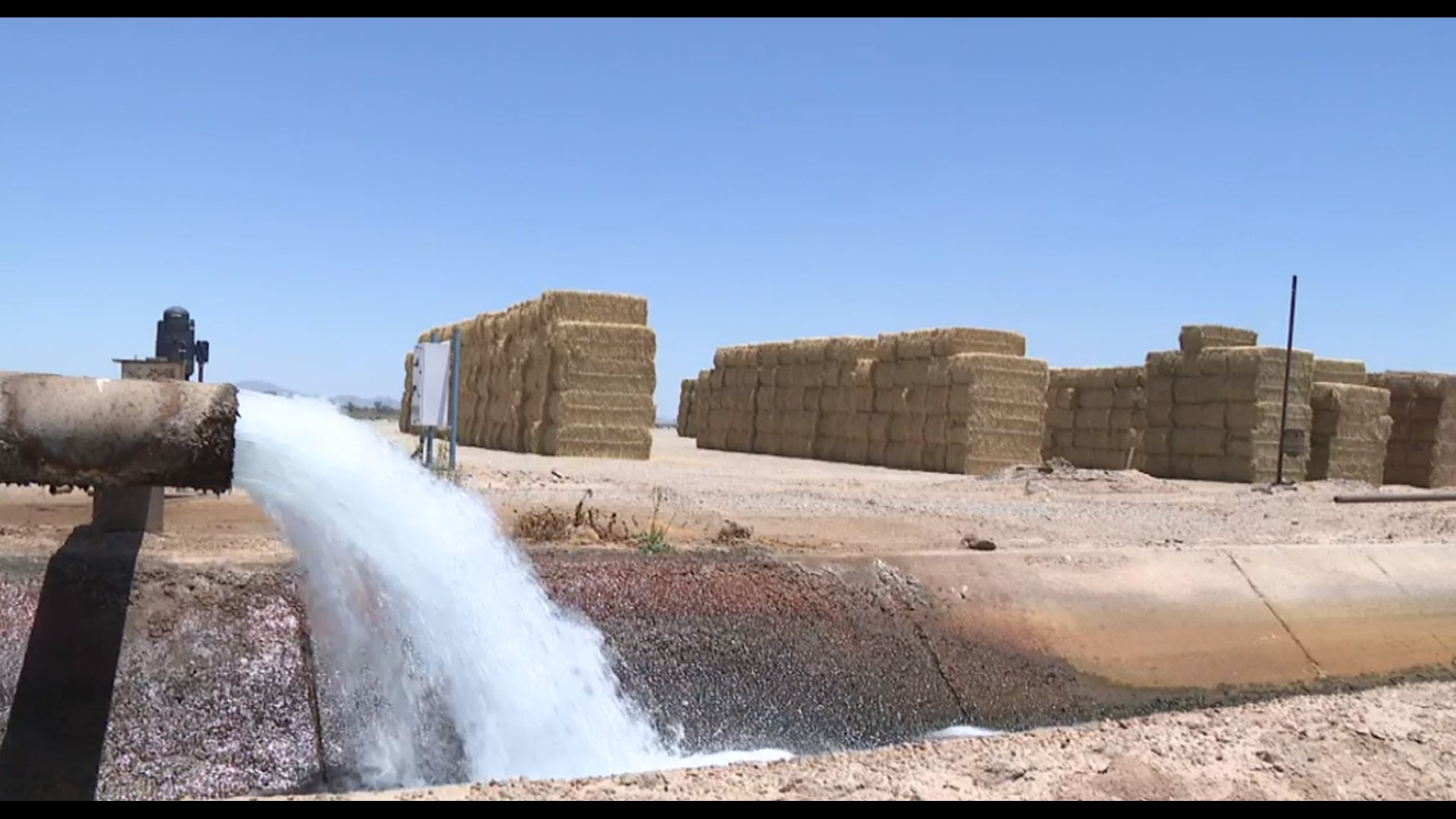PHOENIX — Arizona Attorney General Kris Mayes told 12News she is waiting for the state’s water director to discuss why his department is not complying with a 1980 groundwater conservation law.
“I have not gotten a response,” Mayes said. “I would like to know why and when he is going to respond. If he’s not going to respond, we will assess our options moving forward.”
Mayes, a former sustainability scientist at ASU, vowed during her election campaign to make water conservation a priority.
The first-year attorney general sent a letter to veteran Arizona Department of Water Resources Director Tom Buschatzke in April, saying the department is not conducting hydrological studies in rural areas, as required by A.R.S. 45-412-C .
Water director 'shall periodically review all areas'
The law pertains to groundwater Active Management Areas. The ADWR is obligated to identify regions that rely heavily on groundwater and designate them as AMAs for conservation purposes if they meet one of three criteria. One criteria states, “Active management practices are necessary to preserve the existing supply of groundwater for future needs.”
There are currently five AMAs in Arizona subject to groundwater regulations. Large swaths of the state in mostly rural areas have never been covered by AMAs.
The law states that Arizona’s water director “shall periodically review all areas which are not included with an AMA” to determine whether they should be managed as AMAs “for the purpose of preserving existing supplies of groundwater.”
With the exception of two studies conducted at one basin, Mayes said the state has not performed hydrological studies for the purpose of potential AMA designation over the past 40 years.
“Arizona depends on us making sure we have sound laws and policies in place, and that we at least enforce the current law,” Mayes said.
Mayes asked Buschatzke in writing to notify her of whether he believes ADWR has complied with the statute. If not, Mayes requested he provide reasons. That was more than four months ago.
“I just think they’re not following the law,” Mayes said.
Buschatzke declines to tell 12News whether state is in compliance
Buschatzke, who has served as director for nearly eight years, declined to answer questions from 12News about Mayes’ request.
ADWR Communications Administrator Doug MacEachern told 12News staff members routinely survey basins across the state. Asked if Buschatzke believes those surveys meet industry standards required by A.R.S. 45-412, MacEachern said ADWR would not provide further comment.
An August report from Gov. Katie Hobbs’ Water Policy Council committee on groundwater notes ADWR has more than 1,700 wells across the state where water levels are collected on a routine basis. It also states there is “limited information for many basins” and highlights the fact there are no groundwater reporting requirements outside AMAs.
'Limited information for many basins'
MacEachern also provided a written statement that says ADWR believes existing groundwater-management tools such as AMAs have limitations and rural communities have few options.
“As ADWR hydrologists demonstrated in mid-August in a public forum before the Governor’s Water Policy Council, unregulated groundwater basins across Arizona are experiencing high rates of groundwater depletion,” MacEachern said.
The council’s report outlines a range of potential legislative and policy solutions for rural areas. It identifies three basins considered a “high priority” because of severe declines in water levels.
The council is working on a “policy outcome that will include metrics related to groundwater-management overlays by 2026,” MacEachern said.
Large industrial farms under scrutiny
Buschatzke is chair of the governor’s new water council of more than two dozen members.
Pressure is mounting for state leaders to reign in rural groundwater use.
As 12News reported earlier this year, several large industrial farms are under scrutiny because they pump unlimited groundwater in non-AMA regions of the state. Neighbors report unprecedented drops in well water levels.
One operation, owned by a Saudi company, ships cattle feed it grows to Saudi Arabia.
“The law doesn’t prevent a big corporation like the Saudis to come into Arizona, stick a straw in the ground deeper than everybody else and take the water,” Mayes said.
Up to Speed
Catch up on the latest news and stories on the 12News YouTube channel. Subscribe today.

